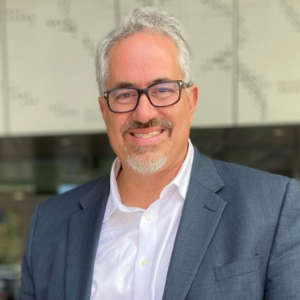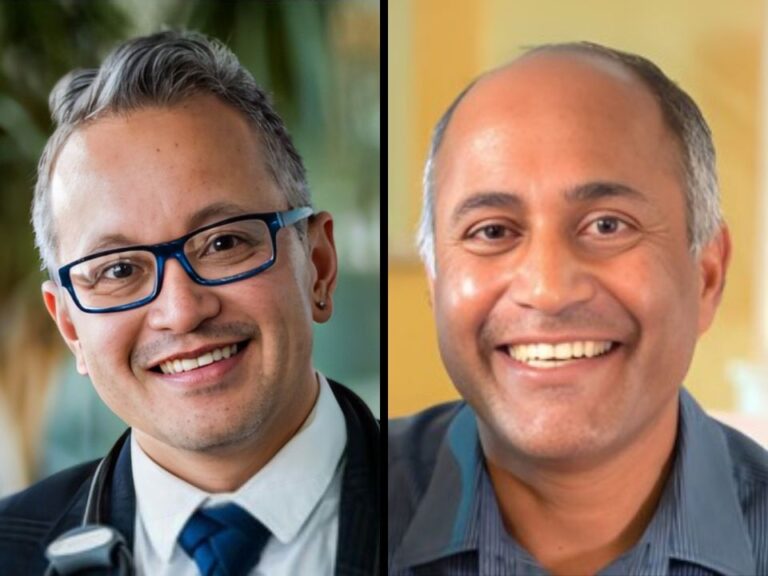Tuesday began a typical day in May in South Texas for me as executive director of the Mays Cancer Center. It was a lovely sunny day for late spring, and at our center we were focused, as we are each day, on the core mission we have had for almost 50 years—to decrease the burden of cancer in San Antonio, South Texas and beyond.
Our center, like other NCI-designated cancer centers, is deeply focused on our community of the 38 counties of South Texas, 4.9 million individuals, 69% of whom are Latino, and many of whom face significant health disparities.
We aim to understand our community. Who are the people in our community? What are the challenges they face in their lives and their health? We try to understand the impact of culture, language, social determinants of health in driving our efforts against cancer.
We aim to better understand the biology of regionally prevalent cancers such as hepatocellular carcinoma. We aim to prevent cancer by advocating for increased HPV vaccination or smoking cessation. We push for screening expansion, develop new treatment clinical trials from our science, and create new ways to support cancer survivors.
Why do we do all this? We do it because we care about our community, and we want to stop cancer from stealing quality of life and length of life from the people in our community.
Today, our community is hurting. Our community has endured yet another senseless and brutal massacre—and we struggle to cope with a sense of being powerless to protect and heal our community. We work so hard to protect our community. We worked tirelessly to decrease tobacco related cancer deaths by working for the passage of TX21 in 2019 to raise the age of purchasing tobacco to 21. We work tirelessly to prevent future cancers by increasing HPV vaccination rates or greater utilization of cancer screening.
We work hard so that children in our community can live long healthy lives less impacted by cancer. But we see how easily the lives of these students and teachers were ended by an assault rifle fired by an individual who would not legally have been able to buy either beer or cigarettes due to laws in place to protect him and the public.
Uvalde, TX, is a typical South Texas town of which our Mays Cancer Center has deep ties. It’s a town of around 15,000 people roughly 85 miles west of downtown San Antonio in the Texas Hill Country, and like much of our region, is a Latino majority community (79% per the 2020 census).
The people of Uvalde travel to the Mays Cancer Center when they need to receive complex cancer care or to enroll in cancer treatment trials. Our outreach efforts in cancer prevention/screening/education aim to benefit the cancer burden in Uvalde.
We care about the people of Uvalde! Our hearts broke at our center, as they did across the country and world, when for reasons none of us may ever truly understand—Salvador Ramos went on a murderous spree at Robb Elementary School on that lovely Tuesday morning and killed 19 children and two teachers.
As we feel this pain as a cancer center, as a university and main academic medical center for this region, as members of this community we ask ourselves—what can we do and how do we help our community?
Our minds raced—not again! Not the third mass shooting in just the last week! In our community in South Texas we are still healing from the scars of Sutherland Springs church mass shooting on Nov. 5, 2017, where 27 members of our community were killed by yet another mass shooter while attending church just 31 miles east of San Antonio.
Our university (University of Texas Health Science Center San Antonio) has been deeply involved with the medical response and directly felt the pain, whether our world class trauma surgeons doing emergency procedures on the injured, or the wonderful mental health professionals who work to heal the many short term and long-term impact/PTSD/trauma on those impacted.
We are heartbroken, we are angry. So, as we feel this pain as a cancer center, as a university and main academic medical center for this region, as members of this community we ask ourselves—what can we do and how do we help our community?
First, cancer centers are a crucial resource for their community. We study the population of our community, know the demographics, know the struggles, know the language and culture, we know challenges and trends in, yes, cancer, but usually much more as it relates to the health and vibrance of our communities.
Second, we have, for many years, been taking this knowledge of our communities to try to improve the health of our communities through advocacy for measures that protect our community.
Third, we usually make an impact on our communities through partnerships with other like-minded organizations (churches, federal/state/local agencies) and individual members of our community to make a difference.
Finally, we have a culture of collaboration and teamwork whether at our medical centers/universities working across disciplines and specialties or collaborations across the national cancer community to make change happen.
What is the answer?
I don’t know, but I do know we can do more together to safeguard the people we care about in our communities from premature death by more than just helping them quit smoking, receive their HPV vaccines, and to get their cancer screenings.










